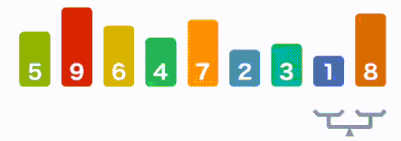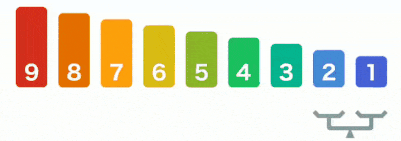BubbleSort Average Case

Time complexity : O(N^2)
If arr[j] is greater than arr[j+1] then swap these adjacent elements, else move on

Time complexity : O(N^2)
If arr[j] is greater than arr[j+1] then swap these adjacent elements, else move on
// C program for implementation of Bubble sort#include <stdio.h>void swap(int* xp, int* yp){ int temp = *xp; *xp = *yp; *yp = temp;}// A function to implement bubble sortvoid bubbleSort(int arr[], int n){ int i, j; for (i = 0; i < n - 1; i++) // Last i elements are already in place for (j = 0; j < n - i - 1; j++) if (arr[j] > arr[j + 1]) swap(&arr[j], &arr[j + 1]);}/* Function to print an array */void printArray(int arr[], int size){ int i; for (i = 0; i < size; i++) printf("%d ", arr[i]); printf("\n");}// Driver program to test above functionsint main(){ int arr[] = { 5, 1, 4, 2, 8 }; int n = sizeof(arr) / sizeof(arr[0]); bubbleSort(arr, n); printf("Sorted array: \n"); printArray(arr, n); return 0;}